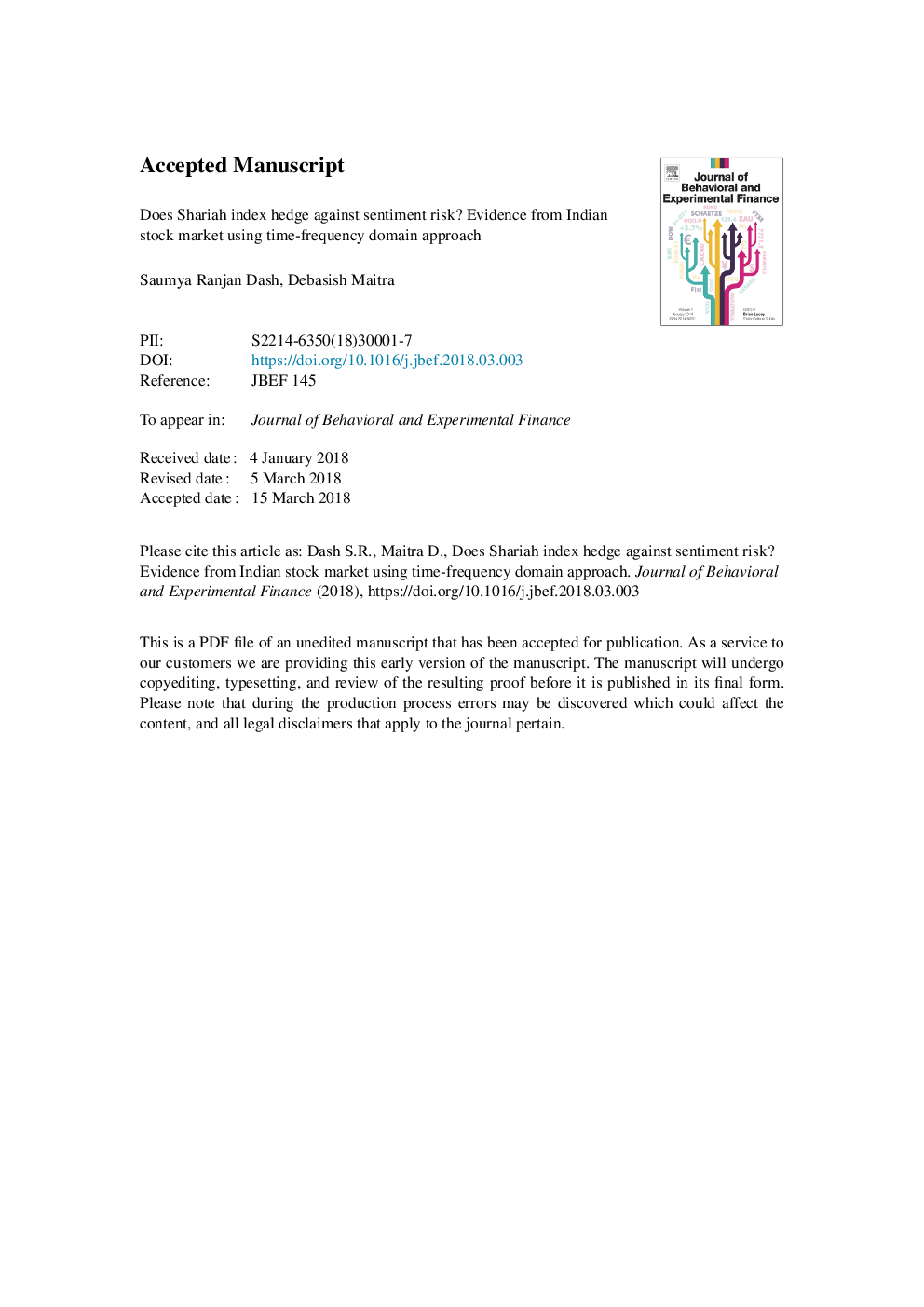| Article ID | Journal | Published Year | Pages | File Type |
|---|---|---|---|---|
| 11020590 | Journal of Behavioral and Experimental Finance | 2018 | 34 Pages |
Abstract
This article examines the relationship of Shariah index returns with sentiments, risk and macroeconomic factors in the Indian stock market. The wavelet method has been used to decompose stock returns, sentiment and macro variables into different time series frequencies. Along with linear causal relationship, the present study also attempts to uncover the effect of non-linearity on causal relationships based on Péguin-Feissolle and Teräsvirta (1999). The results indicate that risk-based explanation is more relevant for Sharia index return behavior in the emerging Indian stock market. This study reports significant relationship between macro variables and Sharia index returns. For Shariah indices, investor sentiments are more likely to affect short-term returns, i.e., high frequent timescales. However, we do not find significant sentiment pricing after controlling the effect of systematic risk factors in an asset-pricing framework. Thus, Shariah-compliance stocks might hedge against waves of investor sentiment during unprecedented market movements.
Related Topics
Social Sciences and Humanities
Economics, Econometrics and Finance
Economics, Econometrics and Finance (General)
Authors
Saumya Ranjan Dash, Debasish Maitra,
